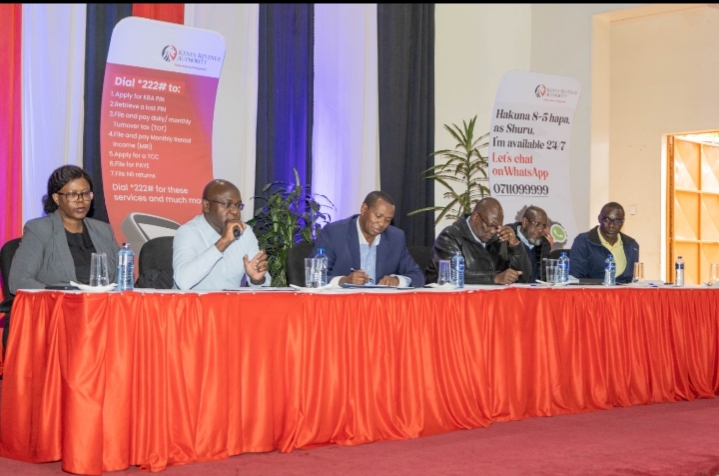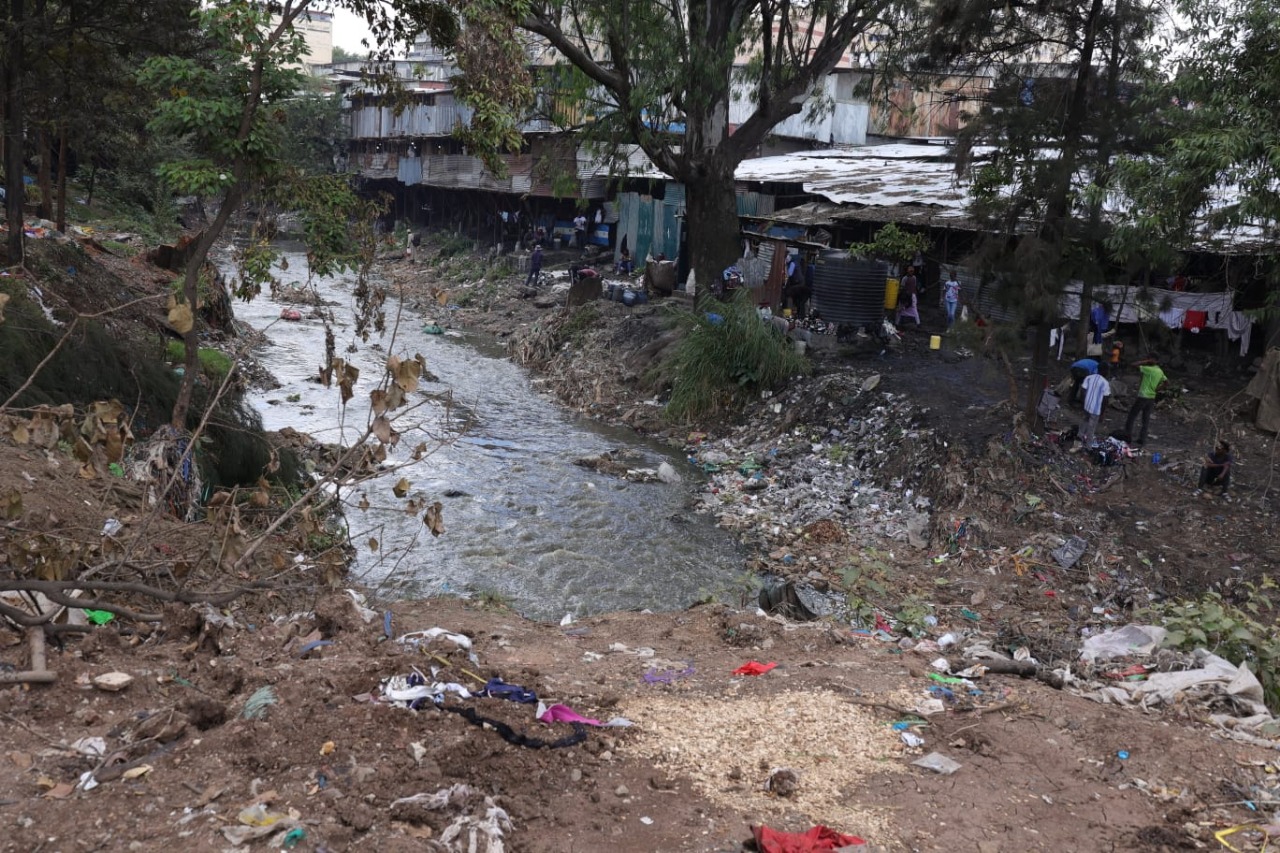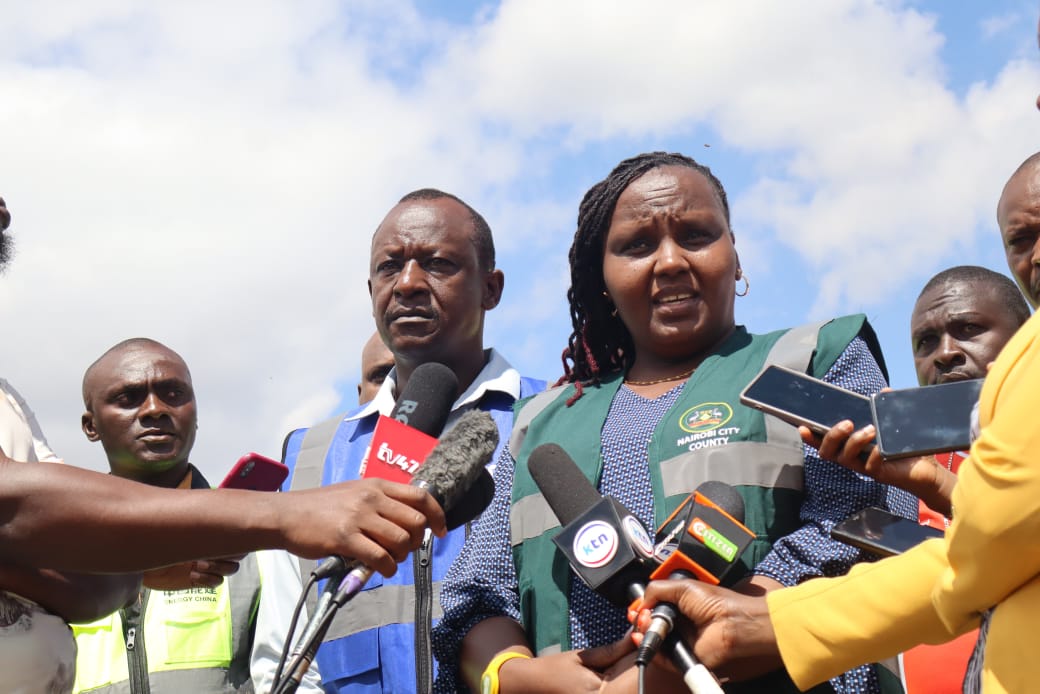African Civil Society Calls for Binding Global Treaty to End Plastic Pollution

African civil society organizations and waste pickers are jointly calling for a strong, legally binding global treaty to address the plastic pollution crisis. As countries prepare for the fifth session of the Intergovernmental Negotiating Committee (INC-5.2), stakeholders across the continent are demanding that the treaty reflect the lived realities of frontline communities and recognize the essential role waste pickers play in managing plastic waste.
During a media roundtable co-organized by the Centre for Environmental Justice and Development (CEJAD) and the Heinrich Böll Foundation (HBF), CEJAD Executive Director Griffins Ochieng emphasized the need for Africa to take a leading role in the negotiations.

“This is an opportunity for Africa to assert its position, protect its people, and shape an ambitious, legally binding treaty that delivers real, systemic change,” said Ochieng. “Let this treaty reflect the lived realities of our people, not the boardroom interests of petrochemical companies.”
Plastic pollution continues to burden African countries, despite them being minimal producers of plastic.
Hellen Dena, the Pan-African Plastics Project Lead at Greenpeace Africa, pointed out that the continent bears disproportionate health and environmental consequences of plastic waste ranging from toxic air, polluted ecosystems, to overwhelmed waste systems.
“Plastics contain thousands of harmful chemicals including stabilizers, flame retardants, and colorants, many linked to cancer, reproductive harm, and endocrine disruption,” she said.
Additionally,Dena stated “Scientific evidence including studies in Kenya has revealed the widespread presence of these chemicals in everyday products, including those used by children.”
She stressed that the treaty must not only address waste management but also limit plastic production and eliminate toxic additives. “Recycling alone cannot solve this crisis,” she added.
Kenya has taken significant steps such as banning single-use plastics and improving recycling, but advocates argue these measures fall short without global accountability. They are demanding a treaty with binding rules rather than voluntary commitments that mandates reduction in virgin plastic production, bans toxic chemicals, and provides for full transparency in chemical content.
Gisore Nyabuti, Chairperson of the Kenya National Waste Pickers Welfare Association, underscored the critical role of informal workers. “Waste pickers recycle up to 60 percent of plastics in Kenya, yet we remain invisible in policymaking,” he said. “We demand formal recognition, fair pay, and protections. We are not just part of the solution we are the solution.”

“Kenya’s single-use plastic ban showed that policy works, but real progress requires going beyond recycling to tackle the root cause: overproduction. A binding global treaty must shift us from managing plastic waste to ending plastic waste.” Fredrick Njau, Programme Coordinator, Sustainable Development Programme, HBF said.
The coalition is also calling for robust financing, safeguards against corporate influence, and a just transition for waste workers. The ultimate goal, they said, is to end waste colonialism and ensure environmental justice for present and future generations.
The Civil Society Coalition in Kenya urge African governments to boldly demand:
- A treaty that enshrines legally binding global rules, not a patchwork of voluntary national actions that let major polluters off the hook.
- A reduction in the production of primary plastic polymers, especially virgin plastics, at the source. We cannot recycle our way out of this crisis.
- The elimination of toxic chemicals in plastics, including harmful additives and polymers. Equally important is transparency: knowing what chemicals are contained in plastics enables governments and communities to make informed choices about their use, regulation, and disposal.
- A just transition for waste pickers and other informal workers, including fair wages, recognition, and social protections.
- Robust financing mechanisms, rooted in the Polluter Pays Principle, to ensure that those responsible for the crisis are the ones who fund the solutions. The Global Environment Facility and Green Climate Fund alone are insufficient.
- Multilateralism that works; through fair and inclusive decision-making processes. We support majority voting where consensus cannot be reached, so progress isn’t derailed by those seeking to delay or weaken the treaty.
- The development and scaling up of safe, toxic-free, and accessible reuse and refill systems, backed by global product design standards, binding reuse targets, investments in infrastructure, and a commitment to the zero-waste hierarchy.
- A treaty that upholds human rights now and for future generations. One that protects our people’s health, livelihoods, and dignity.
- An end to waste colonialism, where under-resourced communities are forced to carry the burden of plastic pollution and waste they did not generate.
- And finally, strong conflict-of-interest safeguards to protect the treaty-making process from the undue influence of the plastics, fossil fuel, and petrochemical industries.
By Sharon Atieno





